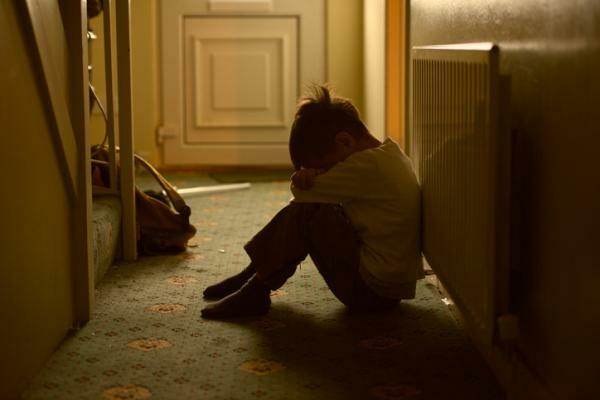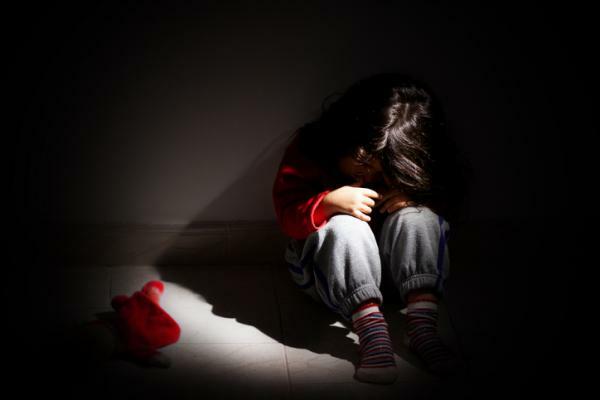
Nobody likes to see their children sadder than usual, with depressed attitudes and moods. It is normal for parents to show great concern for their children when they see that they are in a moment of their life with these characteristics and want to do everything possible to help them. If you wonder what you can do to help your child, we invite you to continue reading this article from Psychology-Online: my son is depressed, what do I do?
Major depression is a common mental disorder characterized by a altered mood, and it can become chronic or recurrent and, consequently, increase the difficulty in the ability to cope with daily life, either at work or at school. The characteristics that define people who suffer from this disorder may be the constant presence of the following aspects:
- Sadness
- Loss of interest and / or pleasure
- Feelings of guilt
- Lack of selfesteem
- Sleep and / or appetite disorders
- Feeling tired
- Lack of concentration
- Depressed mood
- Low energy or fatigue
- Difficulty in making decisions
- Feelings of hopelessness and sometimes thoughts about suicide
Nevertheless, having a depressed mood does not imply suffering from a psychological disorder of major depression or another disorder related to depression, but it could be a temporary or one-off state due to certain situations that generate this state, such as the death of a relative or repeating a course academic.
How do I know if my child has depression?
To know how to differentiate a depression disorder from a temporary depressive state, that is, differentiate depression from sadness, it is important to look at the duration time. Specifically, when a minimum of the five characteristics mentioned above persist for two weeks and represent a change of operation prior to the person and an obstacle to being able to lead a normal and ordinary life, it is a major depression. But, if two or more of these characteristics are present and persist for a minimum of one year (two years in the case of adults), it is considered a chronic depressive disorder.
If you know that your child has depression, it is normal for you to wonder why. There are different causes by which depression can originate:
- Biological causes: among these causes of depression we find genetic factors, hereditary factors and hormonal alterations, among others.
- Psychological causes: among these causes of depression we can find the personality style, factors related to the received upbringing, family structure and childhood life situations that have caused a great impact stressful.
- Situational causes: environmental situations, conflict situations (marital difficulties, for example), feeling of failure (for example, and the most common among children is academic failure or failure in sports), losses (of a loved one, for example).
- Radical lifestyle changes of people: addiction to substances, misuse of stimulants such as coffee or drugs, lack of interpersonal control, change of school, change of city, among others.
In consultation, it is common to hear the phrase "my son is depressed, what should I do?" From concerned parents. The situation is not for less and, if your child has depression, knowing how to help him is essential. In order to help your child if he is at a time in his life when he presents depressive attitudes, it is important that you find time to talk to him, about his feelings and about the things that happen around him and that can cause that state of mind.
You should not only talk to him, too should feel heard. It is not recommended to burden him with many questions, speeches or giving too much advice to convince him that the depressive state in which he finds himself should disappear, but it seems to be more useful show him that he can count on your support And with your help, let him know that you are there to help him.
Learn about the disorder major depressive, thanks to this information you will probably be able to differentiate if it is a psychological disorder or if it is a temporary state of mind. If your child is small, it is important to know the characteristics of the childhood depression. Even so, it is recommended that you can inform a psychologist about your child's situation so that he can assess it and determine what would be the ideal treatment for the child. On the other hand, it may also be interesting to inform the family doctor or psychiatrist so that can prescribe the drugs that are considered necessary to improve the situation in which the patient is boy. Inform the school on the situation can also be very important, since it can be monitored from different systems, that is, from from the school system, from the family system and, from therapy received by a psychologist, by the family doctor and / or by a psychiatrist.
Bearing in mind that suicidal ideation sometimes occurs in major depressive disorder, it is important to know what the warning signs of such ideation are. It is essential to know the prevention of suicidal behavior. When a person has in mind the idea of ending her life, on many occasions, it is not kept as if it were a secret, but rather gives small signals that sometimes we do not perceive. Some of these signs that may indicate a certain risk of suicide are risky behaviors, giving personal items to people who would like them to have a memory of you, changes in personality, threats of suicide or harm, isolation, desire to be alone, among others. It is important to know how to detect these signs and communicate them to a professional.
This article is merely informative, in Psychology-Online we do not have the power to make a diagnosis or recommend a treatment. We invite you to go to a psychologist to treat your particular case.


